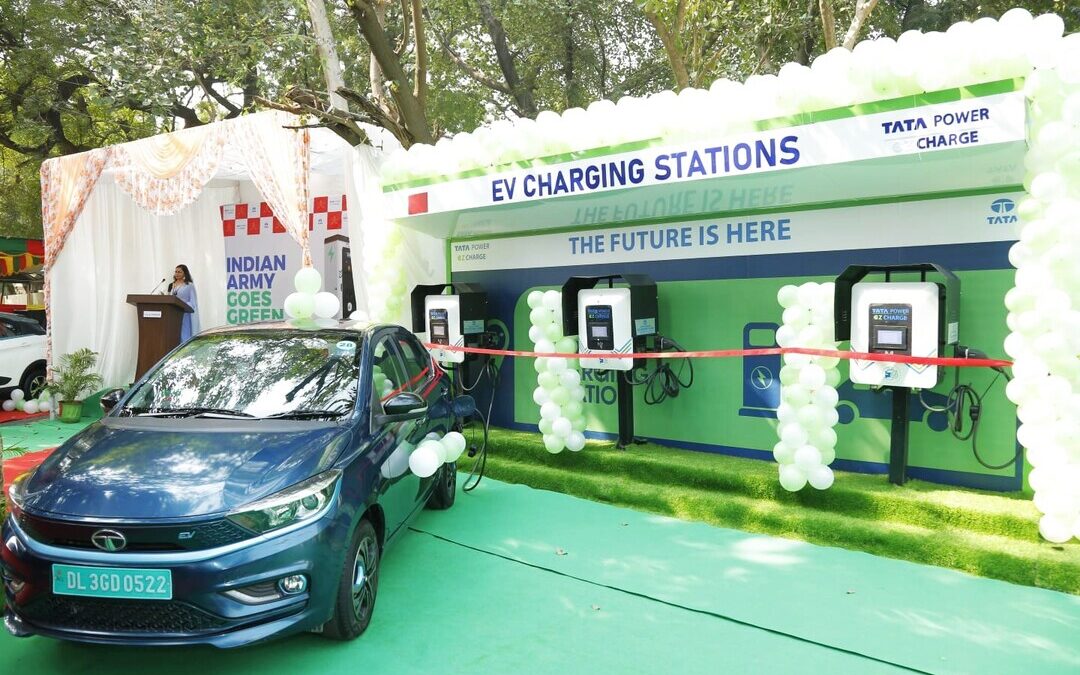Delhi, Maharashtra Lead India’s Electric Vehicle Push, Govt Report Finds
India’s top states accelerate electric vehicle adoption, infrastructure and innovation, reveals NITI Aayog’s latest mobility index.
India’s capital and industrial hubs have emerged as frontrunners in the country’s electric mobility transition, with Delhi, Maharashtra, and Chandigarh topping the “India Electric Mobility Index 2024” released by government think tank NITI Aayog and WRI India on Monday.
The index ranks all 36 states and union territories on progress in electric vehicle adoption, charging infrastructure readiness, and innovation ecosystem development.
The findings come amid rising policy momentum and a surge in EV sales, positioning India as a potential global hub for electric mobility.
Delhi Leads with Comprehensive EV Push
Delhi secured the highest score among states, owing to its aggressive EV policy, strong uptake of electric two- and three-wheelers, and a robust public charging network.
The capital also leads in research and innovation, supported by startups and a growing number of patents in the e-mobility space.
Maharashtra and Chandigarh followed closely, demonstrating comprehensive efforts in both adoption and infrastructure development.
“These states have demonstrated not only ambition but effective implementation,” the report said.
Karnataka, Tamil Nadu Among ‘Performers’; Most States Still Lagging
Karnataka, Tamil Nadu, and Haryana were classified as “performers,” having made progress but still falling short on one or more themes.
Meanwhile, 30 other states and UTs — including large economies such as Uttar Pradesh, Gujarat and West Bengal — were grouped as “aspirants” needing targeted interventions.
“State leadership is critical,” said Rajiv Gauba, member, NITI Aayog. “While national policies provide direction, states must drive implementation in transport, energy, and manufacturing.”
India’s EV Market Accelerates
India’s EV market has grown rapidly, with EVs accounting for 7.7 percent of new vehicle sales in 2024, up from 0.5 percent in 2018. The country now hosts more than 6.5 million EVs on its roads, with two-wheelers comprising 59 percent of EV sales in 2024 alone.
Initiatives such as FAME-II, the newly launched PM e-DRIVE scheme and state-level incentives have underpinned this growth. However, infrastructure gaps remain.
As of October 2024, India had 25,000 public EV charging stations, led by Karnataka, Maharashtra and Delhi. Yet, fast-charging options remain scarce, particularly in rural areas and for commercial vehicles.
Charging Infrastructure, R&D Require Boost
The report highlights shortcomings in infrastructure readiness and research and innovation. While some states have begun integrating EV-ready provisions into building codes and offering land and capital subsidies for chargers, consistency and scale remain limited.
Innovation remains concentrated in a few states. Delhi, Tamil Nadu, Maharashtra and Karnataka accounted for the majority of EV startups and patents, while more than 20 states showed negligible activity in this space.
“The development of local R&D and skilling ecosystems is critical to ensure long-term competitiveness,” the report said.
Toward a Cleaner Future
India has pledged to achieve 30 percent EV penetration by 2030 and net-zero emissions by 2070. Meeting these targets will require intensified collaboration between central and state governments, alongside deeper engagement with private investors.
The index, the first of its kind at a subnational level globally, aims to foster peer learning, guide policy refinements, and encourage states to adopt data-driven approaches. It also seeks to help investors identify high-potential markets.
“India’s e-mobility journey is gaining momentum, but the next decade will be crucial,” said B.V.R. Subrahmanyam, CEO, NITI Aayog. “The challenge now is to translate ambition into scaled action.”
Also Read:
NITI Aayog Rolls Out Index Tracking State-Level EV Adoption Across India
Nirmal Menon
Related posts

Subscribe
Error: Contact form not found.


